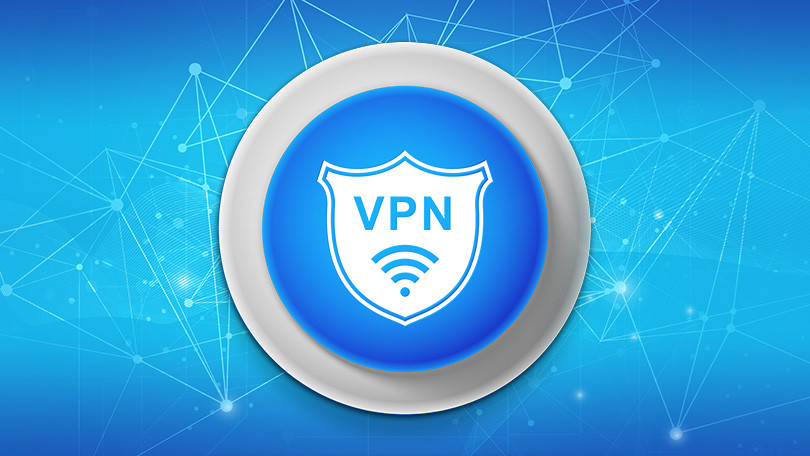Have you ever noticed your internet feeling a bit sluggish after turning on a VPN? You’re not alone. Many of us wonder about the trade-off between online privacy and connection speed. The simple answer is yes, VPNs can make your internet slower, but not always in ways you’ll notice.
When we connect to the internet through a VPN, our data takes a slightly longer journey. It travels from your device to a VPN server before reaching its final destination. This extra step can impact speed, but modern VPN technology has become incredibly efficient at minimizing this effect.
In this article, we’ll explore exactly how VPNs affect internet speed, why this happens, and most importantly, how you can enjoy the security benefits of a VPN without sacrificing too much of that precious speed you need for streaming, gaming, or browsing.
What is a VPN and How Does It Work?
A Virtual Private Network (VPN) creates a secure, encrypted connection between your device and the internet. Think of it as a private tunnel for your online traffic that protects your data from prying eyes. When you use a VPN, your internet traffic is routed through a server in a location of your choice, which masks your real IP address and encrypts your data.
The process works like this:
- You connect to the internet as usual
- You activate your VPN service
- Your device establishes a secure connection to a VPN server
- All your internet traffic passes through this encrypted tunnel
- The VPN server sends your requests to the internet, making it appear as if they’re coming from the server’s location
This extra step in the process is what can potentially slow down your connection. To understand more about the basics of VPNs, you can check out our comprehensive guide on what is a VPN.
Why Might a VPN Slow Down Your Internet?
VPNs can reduce internet speed due to several technical factors. The most significant reasons include:
- Distance to server: The farther away the VPN server is from your physical location, the longer it takes for data to travel back and forth.
- Encryption overhead: Encrypting and decrypting your data requires processing power, which can add small delays to your connection.
- Server load: When many users connect to the same VPN server, it can become congested, slowing down speeds for everyone.
- Protocol efficiency: Different VPN protocols have varying levels of efficiency, with some being faster than others.
- Internet service provider throttling: Some ISPs may intentionally slow down VPN traffic, though this is becoming less common.
The good news is that premium VPN providers continuously work to minimize these speed reductions through advanced technology and infrastructure improvements.
How Much Does a VPN Typically Slow Down Your Internet?
The speed reduction from using a VPN varies widely depending on the factors mentioned above. On average, you can expect:
- Premium VPNs: 10-30% speed reduction
- Mid-range VPNs: 30-50% speed reduction
- Free VPNs: 50-90% speed reduction
For most everyday activities like browsing websites or checking email, you might not even notice these differences. However, for bandwidth-intensive tasks like 4K streaming or online gaming, these speed reductions can be more apparent.
Here’s a comparison of typical speed impacts:
| Activity | Without VPN | With Premium VPN | With Free VPN |
|---|---|---|---|
| Web browsing | Excellent | Good | Fair |
| HD streaming | Excellent | Good | Poor |
| 4K streaming | Excellent | Fair | Unusable |
| Online gaming | Excellent | Good | Unusable |
| Large downloads | Excellent | Good | Poor |
Factors That Affect VPN Speed
Several key factors determine how much a VPN will affect your internet speed:
Server Distance
The physical distance between you and the VPN server plays a significant role in speed. Data travels through physical infrastructure, and longer distances mean more potential points of delay. For optimal speed, choose a server location that’s relatively close to you but still meets your needs (such as accessing geo-restricted content).
Server Load
Popular VPN servers can become overcrowded, especially during peak usage times. When too many users connect to the same server, bandwidth is shared among all connections, resulting in slower speeds for everyone. Premium VPN providers typically offer a larger network of servers to distribute users more evenly.
VPN Protocol
Different VPN protocols offer different balances between security and speed:
- OpenVPN: Offers excellent security but can be slower
- WireGuard®: Newer protocol that provides both strong security and impressive speed
- IKEv2/IPsec: Good balance of speed and security, especially for mobile devices
- L2TP/IPsec: Generally slower than other options
- PPTP: Fast but has known security vulnerabilities (not recommended)
Encryption Strength
Stronger encryption provides better security but requires more processing power, which can slow down your connection. Most VPNs use AES-256 encryption, which is considered the gold standard for security while maintaining reasonable speeds.
Your Original Connection Speed
If you already have a fast internet connection, you’re less likely to notice the speed reduction from a VPN. However, if your base connection is already slow, adding a VPN might make the slowdown more noticeable.
How to Test if Your VPN Is Slowing Your Internet
Curious about how much your VPN is affecting your speed? You can easily test this yourself:
- Disconnect from your VPN and run an internet speed test (using sites like speedtest.net)
- Note your download and upload speeds
- Connect to your VPN and run the same test
- Compare the results
For a more thorough assessment, repeat this process with different VPN server locations and at different times of day. This will give you a better understanding of how various factors affect your specific connection.
Checklist: Is Your VPN Running at Optimal Speed?
Use this checklist to determine if your VPN is performing as well as it should:
- [ ] Your speed reduction is less than 30% with a nearby server
- [ ] You’re using a modern protocol like WireGuard® or IKEv2
- [ ] You’ve selected a server with low user load
- [ ] Your VPN app is updated to the latest version
- [ ] You’re not running too many simultaneous connections
- [ ] Your device has sufficient processing power available
- [ ] Your network hardware (router, modem) is functioning properly
If you checked most of these boxes but still experience significant slowdowns, it might be time to consider switching to a faster VPN provider.
Tips to Improve VPN Speed
If you’re experiencing noticeable slowdowns with your VPN, try these solutions:
Choose the Right Server
Select a server that’s geographically close to you for better speeds. Many VPN apps have a “fastest server” feature that automatically connects you to the optimal server based on your location and current server loads.
Try Different Protocols
Experiment with different VPN protocols available in your app’s settings. WireGuard® typically offers the best balance of speed and security, but your optimal choice might vary based on your network environment.
Split Tunneling
Many VPNs offer split tunneling, which allows you to select which apps use the VPN connection and which use your regular internet connection. This can improve speeds for activities that don’t require the VPN’s protection.
Update Your Software
Ensure your VPN app, operating system, and network drivers are all up to date. Updates often include performance improvements that can enhance speed.
Consider a Wired Connection
If you’re using WiFi, try connecting your device directly to your router with an Ethernet cable. This can improve both your base internet speed and your VPN speed.
Upgrade Your VPN Service
If you’re using a free or low-cost VPN, upgrading to a premium service with better infrastructure can make a significant difference in speed.
When VPN Speed Doesn’t Matter as Much
While speed is important, there are situations where the security benefits of a VPN outweigh the potential slowdowns:
- When using public WiFi networks at airports, hotels, or coffee shops
- When accessing sensitive financial or medical information
- When working with confidential business data
- When bypassing censorship or accessing geo-restricted content
- When preventing your ISP from tracking your online activities
In these scenarios, the protection a VPN provides is more valuable than a slight reduction in speed.
Comparison: VPN vs. Proxy for Speed
Some people consider using proxies instead of VPNs for better speed. Here’s how they compare:
| Feature | VPN | Proxy |
|---|---|---|
| Speed | Generally slightly slower due to encryption | Often faster as they don’t encrypt traffic |
| Security | High (encrypts all traffic) | Low to moderate (doesn’t encrypt all traffic) |
| Privacy | High (hides IP and activity) | Limited (may leak IP address) |
| Compatibility | Works with all apps and services | Usually limited to specific apps or browsers |
| Setup | Easy with dedicated apps | Often requires manual configuration |
While proxies might offer slightly better speeds, they provide significantly less security and privacy protection. For most users, the minor speed difference is worth the enhanced protection a VPN provides. You can learn more about the differences in our VPN vs. proxy comparison.
How VPN Technology Is Evolving to Address Speed Concerns
VPN providers continuously innovate to minimize speed impact while maintaining security:
- New protocols: Modern protocols like WireGuard® are designed specifically for high performance
- Optimized server networks: Providers strategically place servers worldwide and invest in high-quality infrastructure
- Advanced compression: Some VPNs compress data to reduce bandwidth usage
- Smart routing: Intelligent routing algorithms can select the most efficient path for your data
- Dedicated streaming servers: Some providers offer specialized servers optimized for streaming media
These developments mean that the speed gap between using a VPN and browsing without one continues to narrow.
Real-World Examples: VPN Speed in Action
Let’s look at some real-world scenarios to understand how VPNs affect internet speed:
Example 1: Remote Work
Sarah works from home and needs to access her company’s internal network. Her base internet speed is 100 Mbps. When connected to her company’s VPN:
- Without VPN: 100 Mbps download speed
- With VPN: 85 Mbps download speed (15% reduction)
For Sarah’s work tasks—including video calls, accessing documents, and using web applications—this slight reduction doesn’t impact her productivity.
Example 2: Streaming
Mark wants to watch content from a streaming service that’s not available in his country. His base internet speed is 50 Mbps.
- Without VPN: Cannot access the content due to geo-restrictions
- With VPN to correct country: 40 Mbps (20% reduction)
This speed is more than sufficient for HD streaming, allowing Mark to enjoy his favorite shows without buffering issues.
Example 3: Gaming
Alex plays competitive online games and wants to reduce lag. His base internet speed is 200 Mbps with 20ms ping.
- Without VPN: 200 Mbps, 20ms ping
- With VPN to nearby gaming server: 180 Mbps, 35ms ping (10% speed reduction, 15ms ping increase)
While the ping increase might affect competitive gameplay, Alex finds that using a VPN helps protect against DDoS attacks during tournaments.
Understanding VPN Tunnels and Their Impact on Speed
The core technology behind VPNs is the creation of encrypted tunnels between your device and the VPN server. These tunnels secure your data but can affect speed. To understand more about this technology, check out our guide on what is a VPN tunnel.
Modern tunneling protocols have become increasingly efficient at balancing security and performance. The newest protocols use lightweight encryption methods that require less processing power while maintaining strong security standards.
The Security-Speed Trade-Off: Finding Your Balance
When using a VPN, you’re essentially making a trade-off between speed and security. The key is finding the right balance for your specific needs:
- For maximum security: Accept some speed reduction and use the most secure settings
- For everyday browsing: Use a balance of good security with reasonable speed
- for bandwidth-intensive activities: Temporarily disable the VPN or use split tunneling
Most premium VPNs allow you to customize these settings to find your perfect balance point.
FAQ: Common Questions About VPN Speed
Does a VPN always slow down your internet? No, not always. While VPNs can potentially slow down your connection due to encryption and routing through additional servers, premium VPN services often maintain speeds so fast you won’t notice any difference during regular browsing.
Can a VPN ever make your internet faster? Yes, in some cases. If your internet service provider is throttling (intentionally slowing) certain types of traffic, a VPN can actually make your connection faster for those activities by hiding what you’re doing from your ISP.
Do free VPNs slow down your internet more than paid ones? Yes, significantly. Free VPNs typically have fewer servers, more users per server, and less advanced infrastructure, resulting in much slower speeds. They may also limit your bandwidth intentionally to encourage upgrading to a paid plan.
Will using a VPN affect my gaming experience? It might. VPNs can increase latency (ping), which is important for online gaming. However, some gaming-focused VPNs offer specialized servers that minimize this impact while protecting against DDoS attacks.
Does the location of the VPN server matter for speed? Absolutely. The closer the VPN server is to your physical location, the faster your connection will generally be. For best performance, choose a server that’s both nearby and not overcrowded.
Can I improve my VPN speed by changing protocols? Yes. Different VPN protocols have different performance characteristics. Newer protocols like WireGuard® typically offer better speeds than older ones like OpenVPN, while still maintaining strong security.
Will using a VPN on my phone slow down my mobile data? Yes, but the impact varies. Mobile connections already have more variables that affect speed, so adding a VPN can make them slightly slower. However, with a quality VPN service and a decent mobile signal, the difference is often negligible for most activities.
Conclusion
So, does VPN make internet slower? The answer is yes, but the impact varies widely based on several factors. With a quality VPN service and optimal settings, most users experience only minimal speed reductions that don’t significantly impact their online activities.
The key is to understand your specific needs and choose a VPN that balances speed and security accordingly. For most everyday browsing, the slight speed reduction is a small price to pay for the enhanced privacy and security a VPN provides.
Remember that the VPN industry continues to evolve, with new technologies constantly emerging to minimize speed impact while strengthening security. By staying informed and choosing a reputable VPN provider, you can enjoy the best of both worlds: a secure connection and speeds that keep up with your digital life.
Ready to find the right VPN for your needs? Check out our comprehensive guide to VPN benefits to learn more about how these tools can enhance your online experience. And for more information on staying safe online, visit our cybersecurity resource center.


